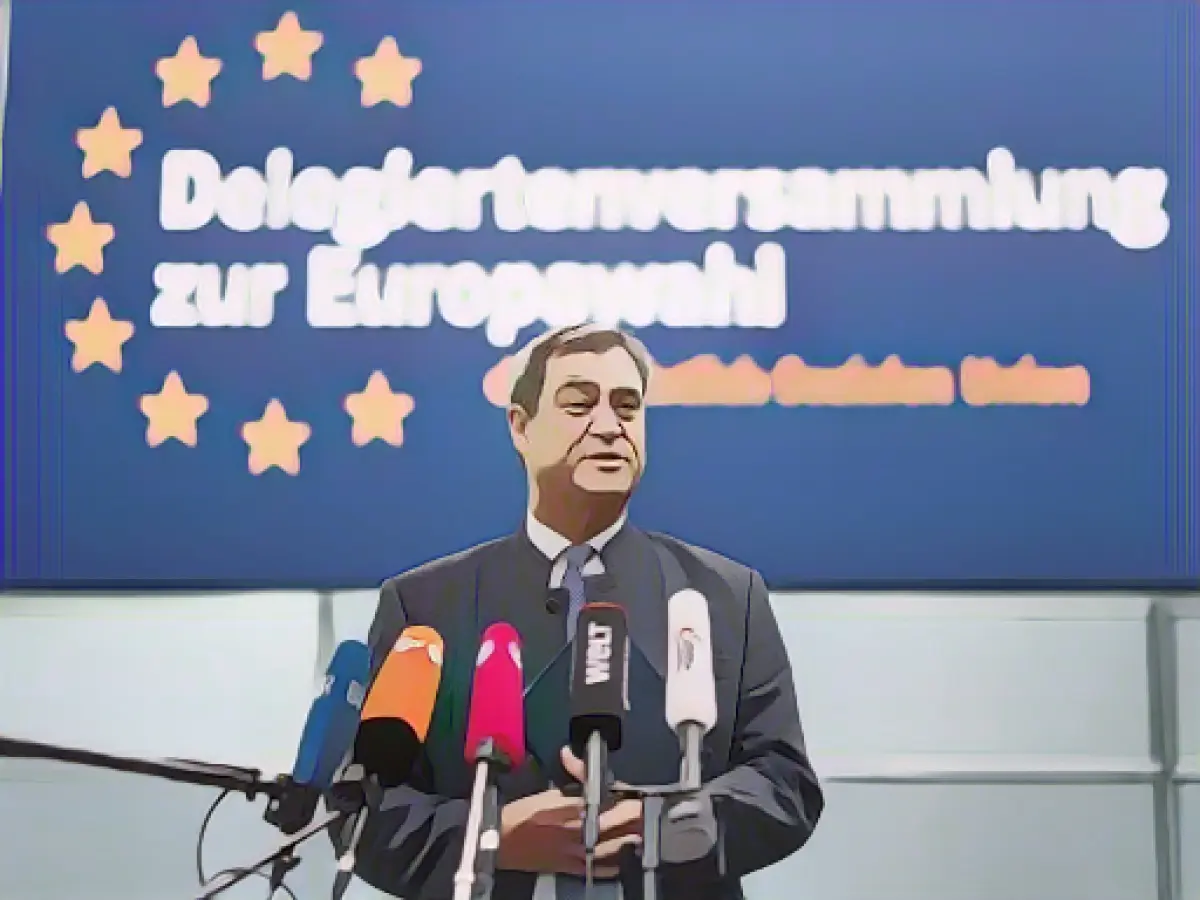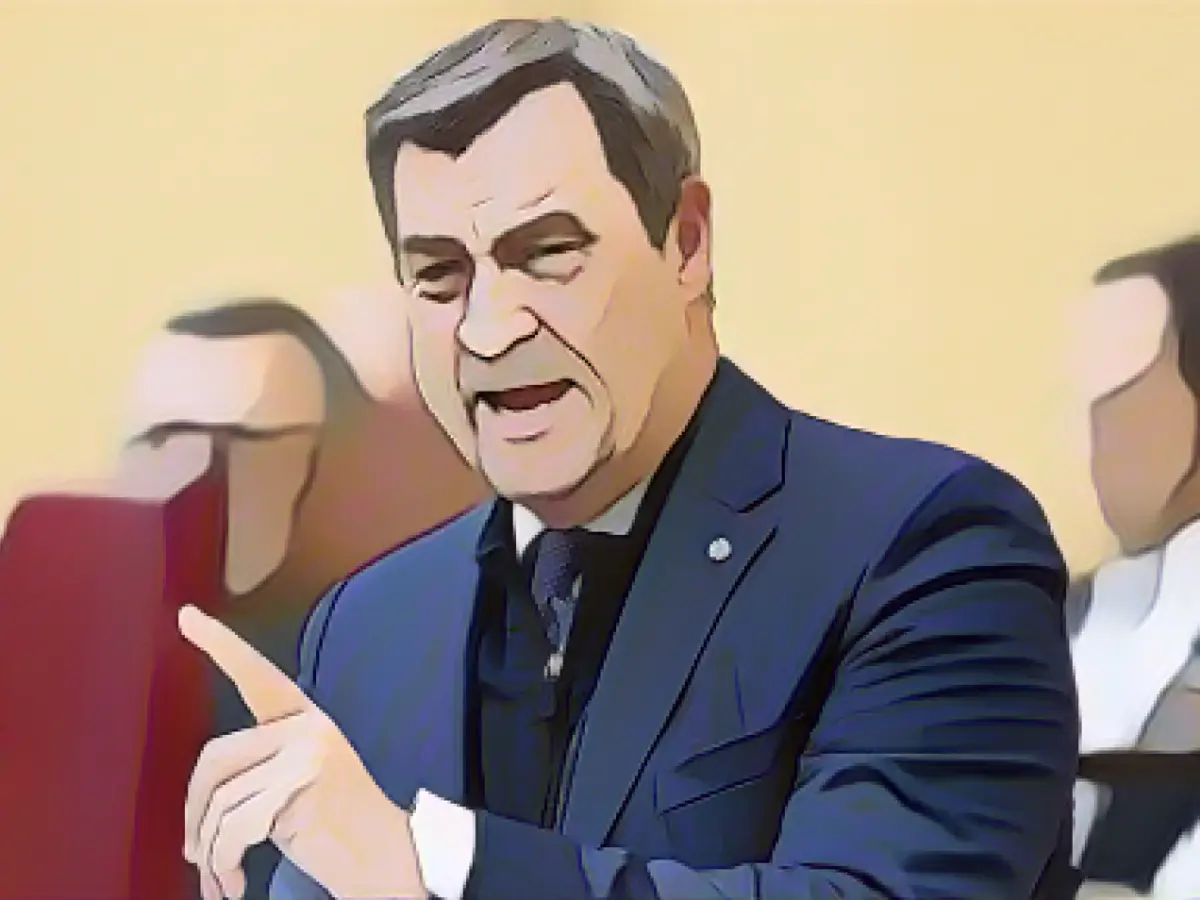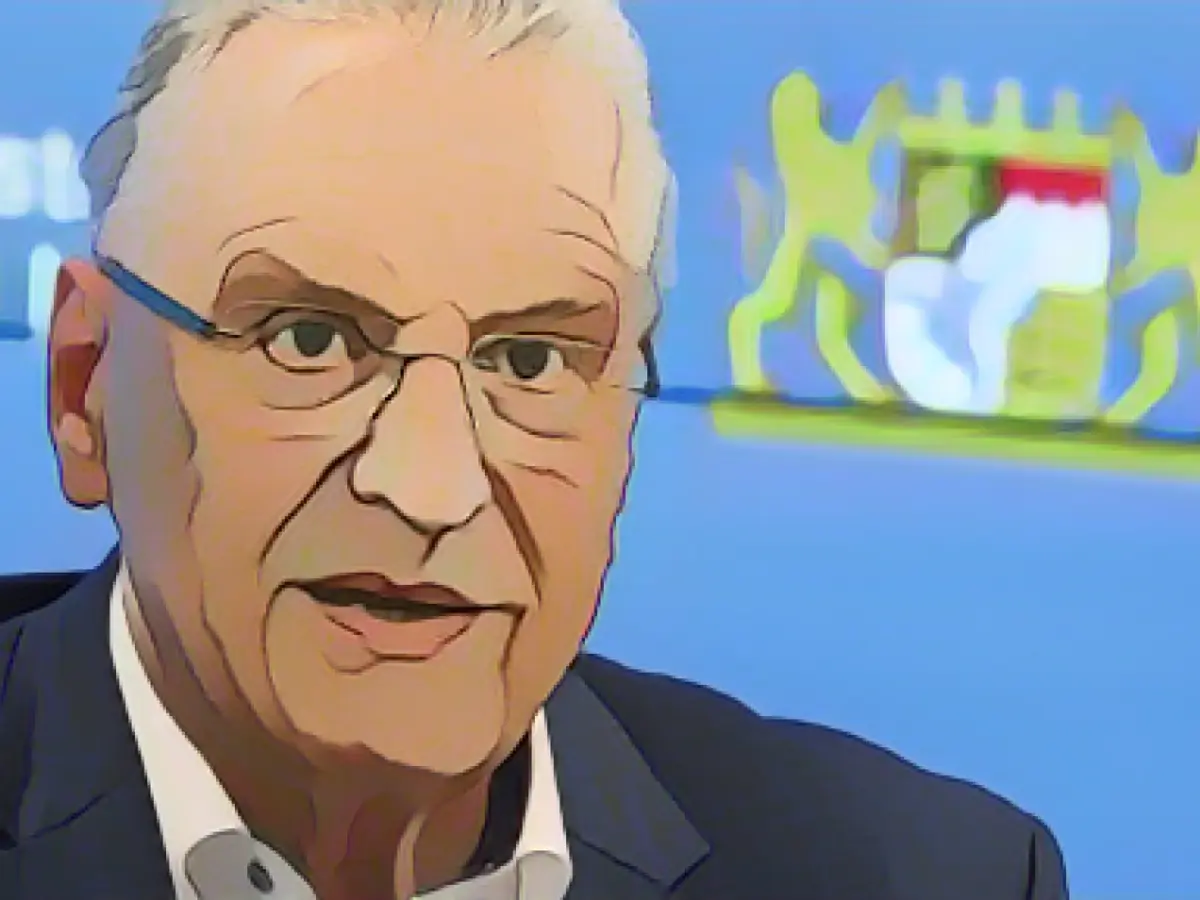Germany's Leading Figure, Söder, Fears National Crisis
Bavaria's Minister President Markus Söder (CSU) painted a grim picture of Germany, labeling it as currently enduring a "serious national crisis" due to the missteps in budget policies. Addressing his party's European election list in Nuremberg, Söder criticized the government for steering the country to ruin, commenting, "This government has run into the ground."
Unlike the challenges presented by the COVID-19 pandemic and the war in Ukraine, this crisis originated from within. Söder declared, "We don't have a budget emergency, we have a government emergency." The government's missteps included charging headlong into the citizens' income debate and reintroducing full VAT in the catering sector, both of which, Söder contends, require major revisions.
Söder fiercely opposed the elimination of the debt brake in response to the Federal Constitutional Court's resolution of budgetary problems. He touts a stable fiscal policy as the key to Germany's past success, and deems it essential to maintaining a solid footing for both Germany and Europe as a whole.
With Söder's critique in mind, political leaders may amend their budgetary spending policies in anticipation of upcoming elections. Despite their criticisms, individuals and families need to remain vigilant regarding their own financial well-being during this period of adjustment.
Inner Political Scenarios
Rumors abound as to how political parties might respond to Söder's castigation of their budget policies. With varied perspectives, the following policy changes could be on the table:
- Debt Brake Modernization
- SPD and Greens blame the existing debt brake mechanism for inflexibility, proposing to upgrade it. They suggest that Germany can efficiently manage higher levels of debt, citing examples of stronger economies with greater public debt percentages.
- Tax Policy Adjustments
- CDU/CSU advocates a supply-side policy to stimulate economic growth. They favor tax relief, including tax cuts for the affluent and businesses, to enhance competition and cut red tape.
- Review of Social Expenditure
- CDU/CSU's Friedrich Merz proposes reconsidering spending on social welfare to uncover potential savings. He also advocates reducing bureaucracy and increasing employment through work incentives.
- Investment in Digitalization and Infrastructure
- All parties recognize the need for digitalization and infrastructure upgrades to tackle fundamental economic issues, focusing on energy, digital, rail, and overall modernization.
- Immigration and Asylum Policy Reforms
- CDU/CSU's Friedrich Merz proposes revising immigration regulations, tightening migration policy, and outsourcing asylum applications to third countries.
- Economic Growth Strategies
- CDU/CSU's Agenda 2030, aimed at achieving 2% GDP growth in the medium term, extols the virtues of tax reduction and tech investment for foster ing competitiveness and attracting talent.
- Reconsideration of Energy Policy
- CDU/CSU recommends revisiting energy policy, including discussing the future of combustion engines and weighing the gravity of climate concerns in economic planning. However, Friedrich Merz has reversed his stance on bringing nuclear reactors back online.
As this intricate web of policy proposals unfolds, political parties attempt to respond to the challenges confronting Germany while navigating the shifting political landscape.








